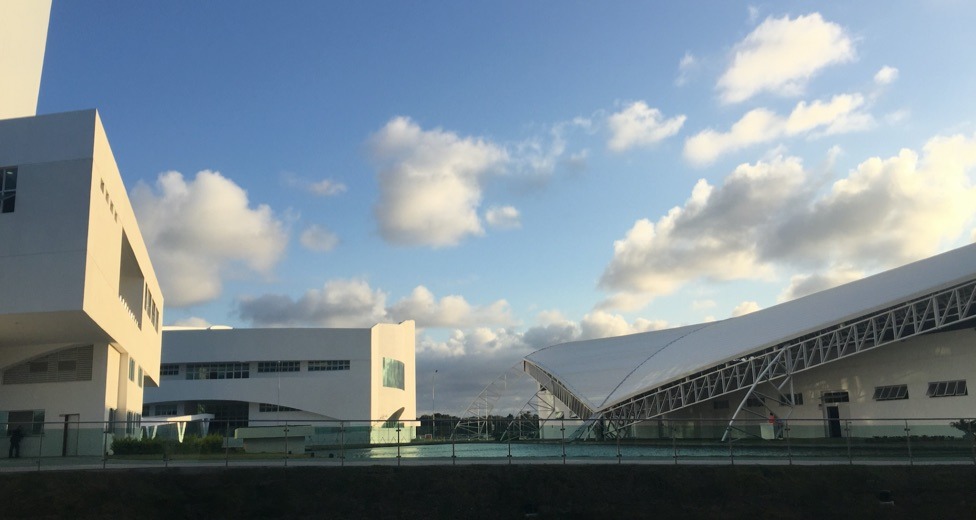IGF 2015 in João Pessoa, Brazil will be seen as a milestone for the global Internet community. After 10 years of intense work, the IGF has earned the right to celebrate its success and prepare itself for the future.
As we come out of the meeting, we are urging all who want to be heard at this important moment in the evolution of the Internet to join over 80 organizations and individuals who have already signed on to a message to the UN General Assembly that will 1) help safeguard the IGF for the future; 2) preserve the multistakeholder model of governance; and 3) help keep us focused on the work at hand.
The Internet Governance Forum has always been about the future. At its inception in Tunis on 18 November 2005, it was charged with organizing itself to think about the future; a future that was neither clear nor guaranteed. For 10 years, it has been a bazaar for ideas, a marketplace for trading experiences, and a forum for learning the implications of a global network of networks. Stakeholders from civil society, business, academia, governments and the Internet technical community have come a very long way in finding common ground and learning how to learn from and share with each other.
During the past week, over 2500 people on the ground in João Pessoa and 1500 people in remote hubs, participated in over 100 workshops, round tables and best practice sessions. The Best Practice Forums were well organized, well attended and produced strong papers in six different areas, all supporting the overarching track on“ Policy Options for Connecting the Next Billion“. These outputs were made possible by the commitment of over 500 hundred experts who worked all year long and who were eager to present their findings in João Pessoa. The meeting was filled with the pride of participants of this extraordinary output of work –and the collaborative model we have, together, developed and nourished all year long.
And, we heard in the past two days the news we were waiting for: at the UN General Assembly meeting of the WSIS+10 Review in New York on December 15 and 16, 2015, the mandate of the IGF is likely to be renewed for 10 years more.
We understand, however, that no decision has yet been made and that it will be formalized in the next weeks at “informal meetings” of governments at which the non-governmental stakeholders will not be invited. Given that we will not be present at this crucial meeting, representatives of many of the organizations who gathered in João Pessoa, Brazil, along with other organizations and individuals from around the world, have developed a statement to the UN General Assembly with three key messages which we believe are crucial to negotiations in the final phase of the WSIS+10:
- The IGF, harnessing the benefits of the community’s diversity, has become a primary vehicle for identifying issues and solutions through a collaborative approach, on an equal footing and in a free and open environment. The proliferation of national and regional IGF initiatives is a sign of its relevance, and an example of an inclusive, bottom-up approach to global issues, rooted in local communities. We fully support the IGF mandate renewal. In addition, further efforts to implement recommendations for improvements to the IGF will be essential for the community’s ability to continue addressing complex problems, and the challenges of the future.
- The multistakeholder approach, cooperatively developed since the inception of the Internet is critical in achieving the WSIS goals. The Internet is one of our most important tools for sustainable development, improved human rights and good governance. The community must safeguard the principles of collaboration, openness, transparency and inclusiveness that have allowed the Internet to flourish.
- There is still much work to be done, especially in connecting the unconnected. Access to an open and inclusive Internet is the central issue of our time, and a fundamental tool enabling free speech and empowering people in the 21st century. The newly adopted Sustainable Development Goals recognize the Internet and connected information and communication technologies (ICTs) as a critical enabler for economic and social progress. The close alignment between the WSIS action lines and these goals reflects the essential role of ICT and the Internet in advancing the 2030 agenda. To achieve these goals, and to ensure a secure and trustworthy Internet, it is crucial that the future of the Internet be shaped through an open, inclusive and truly multistakeholder process.
At the Internet Society, we believe that in ten years hence we will look back at João Pessoa as the meeting at which the multistakeholder model of Internet Governance was solidified and settled as the best and only way to move forward to the future we want: an Internet of Opportunity for all.
We urge all who want to be heard at this important moment to join with us and many others in sending this message. The statement will be submitted before next week when governments gather for their informal meetings in New York.
Thank you, as always, for your dedication, passion and willingness to ensure that the Internet is for Everyone, Everywhere.

